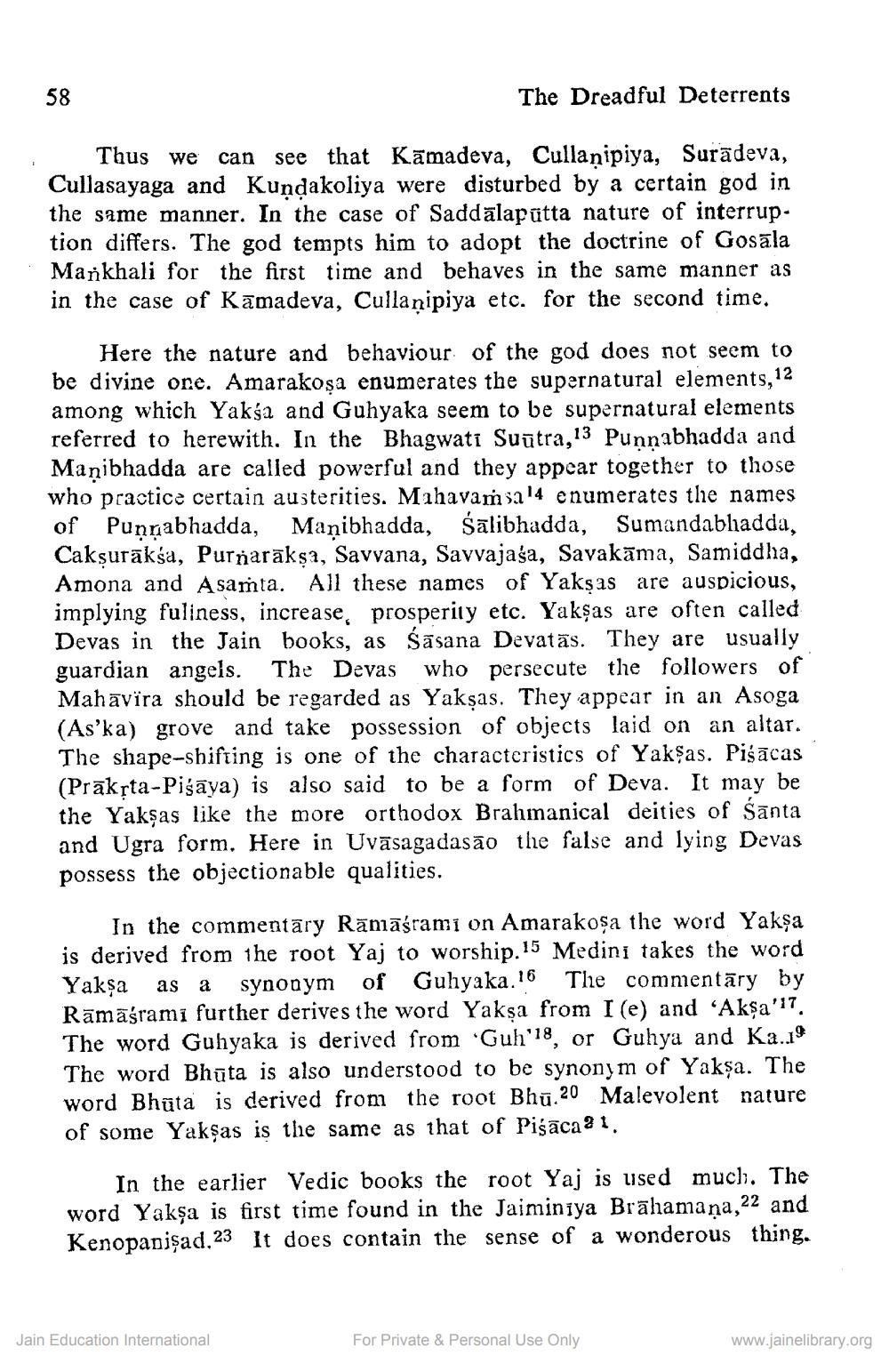________________
58
The Dreadful Deterrents
Thus we can see that Kāmadeva, Cullanipiya, Surādeva, Cullasayaga and Kundakoliya were disturbed by a certain god in the same manner. In the case of Saddālaputta nature of interruption differs. The god tempts him to adopt the doctrine of Gosāla Markhali for the first time and behaves in the same manner as in the case of Kāmadeva, Cullanipiya etc. for the second time.
Here the nature and behaviour of the god does not seem to be divine one. Amarakoșa enumerates the supernatural elements, 12 among which Yakša and Guhyaka seem to be supernatural elements referred to herewith. In the Bhagwati Suūtra 13 Punnabhadda and Manibhadda are called powerful and they appear together to those who practice certain austerities. Mahavamsa 14 enumerates the names of Puņņabhadda, Maņibhadda, śālibhadda, Sumandabhadda, Cakşurākša, Purnarākşa, Savvana, Savvajaša, Savakāma, Samiddha, Amona and Asaṁta. All these names of Yakşas are auspicious, implying fuliness, increase prosperity etc. Yakşas are often called Devas in the Jain books, as Śāsana Devatās. They are usually guardian angels. The Devas who persecute the followers of Mahāvīra should be regarded as Yakşas. They appear in an Asoga (As’ka) grove and take possession of objects laid on an altar. The shape-shifting is one of the characteristics of Yakşas. Piśācas (Prāksta-Piśāya) is also said to be a form of Deva. It may be the Yakşas like the more orthodox Brahmanical deities of Santa and Ugra form. Here in Uvāsagadasão the false and lying Devas possess the objectionable qualities.
In the commentāry Rānāśrami on Amarakoşa the word Yakşa is derived from the root Yaj to worship. 15 Medini takes the word Yakşa as a synonym of Guhyaka.16 The commentāry by Rāmāśrami further derives the word Yakşa from I (e) and “Akşa'17. The word Guhyaka is derived from Guh'18, or Guhya and Ka..1% The word Bhūta is also understood to be synonym of Yaksa. The word Bhūta is derived from the root Bhū.20 Malevolent nature of some Yakşas is the same as that of Pišāca a i.
In the earlier Vedic books the root Yaj is used much. The word Yakşa is first time found in the Jaiminiya Brāhamana,22 and Kenopanişad.23 It does contain the sense of a wonderous thing.
Jain Education International
For Private & Personal Use Only
www.jainelibrary.org




